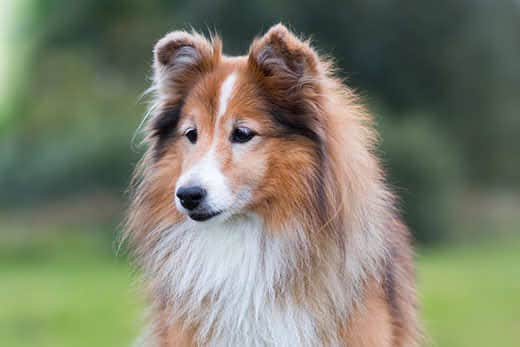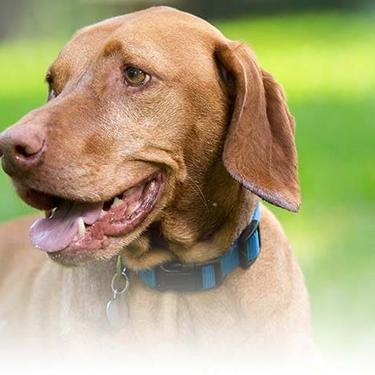
-
Find the right food for your pet
Take this quiz to see which food may be the best for your furry friend.
Find the right food for your pet
Take this quiz to see which food may be the best for your furry friend.
Featured products
 Small & Mini Savory Stew with Chicken & Vegetables Dog Food
Small & Mini Savory Stew with Chicken & Vegetables Dog FoodA delicious complement to the nutrition of Science Diet Small & Mini 7+ dog food
Shop Now Adult 7+ Perfect Digestion Chicken, Whole Oats & Brown Rice Recipe Dog Food
Adult 7+ Perfect Digestion Chicken, Whole Oats & Brown Rice Recipe Dog FoodScience Diet's breakthrough nutrition supports ultimate digestive well-being & healthy microbiome for dogs age 7+
Shop Now Adult Healthy Cuisine Roasted Chicken, Carrots & Spinach Stew Dog Food
Adult Healthy Cuisine Roasted Chicken, Carrots & Spinach Stew Dog FoodDelicious roasted chicken paired with tender vegetables in a succulent stew
Shop NowFeatured products
 Adult 7+ Senior Vitality Chicken & Vegetable Stew Cat Food
Adult 7+ Senior Vitality Chicken & Vegetable Stew Cat FoodImproves Everyday Ability to Get Up & Go
Shop Now Adult Savory Entrée Can Variety Pack Cat Food
Adult Savory Entrée Can Variety Pack Cat FoodPrecisely balanced nutrition with the delicious taste of savory minced chicken to help fuel the energy needs of cats during the prime of their life
Shop Now Adult 7+ Tender Tuna Dinner Cat Food
Adult 7+ Tender Tuna Dinner Cat FoodWith delicious chunks in a decadent gravy
Shop Now -
Dog
- Dog Tips & Articles
-
Health Category
- Weight
- Food & Environmental Sensitivities
- Urinary
- Digestive
- Joint
- Kidney
-
Life Stage
- Puppy Nutrition
- Adult Nutrition
- Senior Nutrition
Cat
- Cat Tips & Articles
-
Health Category
- Weight
- Skin & Food Sensitivities
- Urinary
- Digestive
- Kidney
-
Life Stage
- Kitten Nutrition
- Adult Nutrition
Featured articles
 Do Dogs and Cats have Belly Buttons?
Do Dogs and Cats have Belly Buttons?Learn whether cats & dogs have belly buttons like humans, what the function is, and if there are any health concerns associated with it.
Read More Why Are Dogs and Cats So Cute?
Why Are Dogs and Cats So Cute?If waggy puppy dog tails and furry kitten yawns make you swoon, you're not alone. Why are cats so cute? And, dogs too! Let's find out!
Read More Does My Pet Hate Me?
Does My Pet Hate Me?Learn tips for bonding with your pet if you've ever thought, 'My dog doesn't like me, or 'Why do I have a standoffish cat?'
Read More -


What is collie eye anomaly (CEA)? CEA is an eye condition that affects dogs. Collies are often diagnosed with the genetic form of CEA, hence the name. The condition can affect the entire eye or part of the eye, and it can be seen in one or both eyes. If you're concerned that your dog may have CEA, read on to learn more about the causes, clinical signs, treatment and more.
Collie Eye Anomaly Causes

True to its name, the genetic form of CEA is usually diagnosed in collies and collie crosses. Australian shepherds, Shetland sheepdogs and border collies are also affected. Some less common breeds that are affected by genetic CEA include the Boykin spaniel, the longhaired whippet, the silken windhound, the Hokkaido dog, the Lancashire heeler and the Nova Scotia duck tolling retriever. The problem in CEA is that an area of the retina (the nerve layer of the eye with rods and cones) and/or the choroid (the choroid is the blood vessel layer under the retina) does not develop the way it should because of DNA mutations. CEA is inherited in an autosomal recessive manner, meaning dogs will only develop this disorder if they have two copies of the gene mutation, one from each parent, that causes this defect.
- Spontaneous: The spontaneous form of CEA occurs when something affects the normal development of a puppy's eye while they're growing in the womb. The spontaneous form of CEA can occur if the mother experiences a systemic infection or inflammation, is exposed to a toxin or is malnourished during pregnancy. In both forms of CEA, the blood vessels that deliver blood to the retina are underdeveloped and too small, leading to abnormal development of the eye.
Clinical Signs of Collie Eye Anomaly
While blindness is often the first sign pet parents note, other signs of CEA in dogs include:
- A small eyeball
- A sunken appearance to the eyeball
- An eye that looks cloudy
Clinical signs of CEA are usually first seen in very young dogs. If you notice any of these signs or if you suspect that your puppy is going blind, call your veterinarian to get your dog seen as soon as possible.


Tasty Tips
Diagnosing and Treating Collie Eye Anomaly
CEA is usually diagnosed in puppies at birth or within six to eight weeks of age. A vet will diagnose CEA with an examination of the eye and a complete physical exam. Your vet will likely use a combination of eye exams, including looking at the back of the eye to examine the retina, and may refer you to consult with a board-certified veterinary ophthalmologist. For best results, always follow all your vet's recommendations.

While there isn't a cure for CEA, many dogs diagnosed with this eye condition show little to no signs and have no problems with their vision. These dogs require no treatment other than yearly eye exams to check for any progression of the disease. Depending on how severely a dog is affected, their vision may be preserved with a variety of treatment options. For example, if your dog experiences retinal detachment due to this condition, this may be able to be corrected with laser surgery.
In some cases, dogs are severely affected with CEA can go blind or are born blind. Fortunately, dogs can adapt to blindness and hone their other senses, and most blind dogs can lead long, healthy, happy lives. As a pet parent, there are easy things you can do to help a blind dog live their best life.
Preventing Collie Eye Anomaly
The genetic form of CEA is considered an autosomal recessive inherited disorder, which means a puppy must receive a copy of the mutated NHEJ1 gene on chromosome 37 from both parents to develop the condition, as a study in BMC Veterinary Research noted. The best way to prevent inherited CEA in your dog is to only obtain puppies from breeders that have certified their breeding dogs to be genetically tested and free of the genetic mutations that cause CEA. You'll have extra peace of mind if the breeder also has paperwork showing that a veterinary ophthalmologist has signed off on the dogs as well.
If you have a pregnant dog, then you can help prevent spontaneous CEA by working with your local vet to ensure the puppies develop normally before they're born. You can support this development by keeping the mother away from toxins, appropriately vaccinating them, ensuring that they're parasite- and infection-free and feeding them complete and balanced food that's formulated for pregnant or nursing dogs.
Now that you know the answer to, "What is collie eye anomaly?" you can rest assured that this eye condition won't cause any serious harm or pain to your dog. As long as you keep all follow-up appointments to monitor the progression of CEA, you and your pup are free to continue on your happy life together.


Dr. Sarah Wooten graduated from UC Davis School of Veterinary Medicine in 2002. A member of the American Society of Veterinary Journalists, Dr. Wooten divides her professional time between small animal practice in Greeley, Colorado, public speaking on associate issues, leadership, and client communication, and writing. She enjoys camping with her family, skiing, SCUBA, and participating in triathlons.
Related products

A delicious complement to the nutrition of Science Diet Small & Mini 7+ dog food

Delicious roasted chicken paired with tender vegetables in a succulent stew

Science Diet's breakthrough nutrition supports ultimate digestive well-being & healthy microbiome for dogs age 7+

Delicious braised beef paired with tender vegetables in a succulent stew
Related articles

Large and giant breed puppies have different nutritional needs than other dogs. Learn how to provide the special care they need to grow up big and strong.

Learn about choosing the right food for your mature or older dog, ensuring he receives the correct balance of nutrition.

Hill's Science Diet Small & Toy Breed dog foods are designed to meet the nutritional needs for your small dog at every life stage. Learn more here.

Your dog's coat and skin are a big part of your dog's overall health. Ensure you keep your dog's coat healthy, by following these simple tips.

Put your dog on a diet without them knowing
Our low calorie formula helps you control your dog's weight. It's packed with high-quality protein for building lean muscles, and made with purposeful ingredients for a flavorful, nutritious meal. Clinically proven antioxidants, Vitamin C+E, help promote a healthy immune system.
Put your dog on a diet without them knowing
Our low calorie formula helps you control your dog's weight. It's packed with high-quality protein for building lean muscles, and made with purposeful ingredients for a flavorful, nutritious meal. Clinically proven antioxidants, Vitamin C+E, help promote a healthy immune system.

